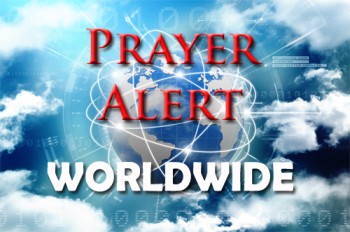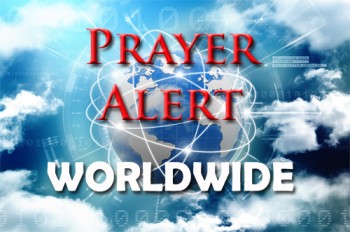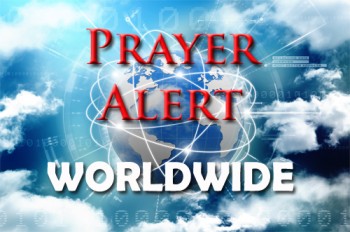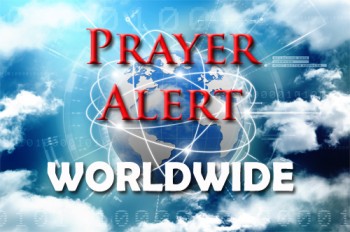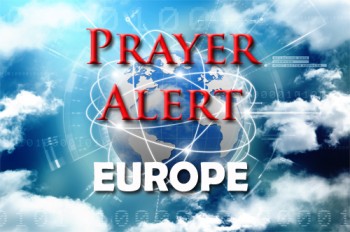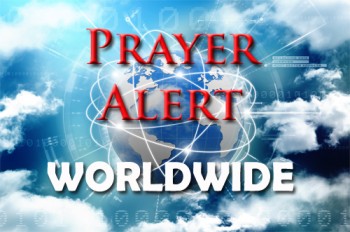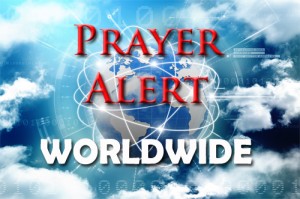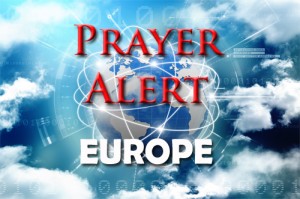Displaying items by tag: violent protests
Kazakhstan: violent protests
Protests in Kazakhstan began on 2 January when the government removed a fuel price cap. The speed with which protests turned violent surprised everyone, hinting that they are not only about fuel. This is a traditionally stable Central Asian state, often described as authoritarian, with no electoral democracy - so people needed to take to the streets to be heard. Accusing foreign-trained ‘terrorist gangs’ of being behind the trouble, President Tokayev imposed a state of emergency that includes a curfew, a ban on mass gatherings, and Russian assistance to help ‘stabilise’ the country. Dozens of protesters were ‘eliminated’ after they stormed police buildings to steal weapons. By 6 January about 1,000 people had been injured; 400 are being treated in hospital and 62 are in intensive care. Twelve members of the security forces have been killed, and 353 injured.
Solomon Islands: violent rioting
Solomon Islands prime minister Manasseh Sogavare declared a lockdown on 24 November after a thousand anti-government protesters gathered in the capital demanding his resignation. Sogavare has been in power for twenty years, and foreigners have plundered the country’s resources. The people are not blind to this, and will not be cheated any more. A Honiara journalist said the cause of the chaos was a ‘mixture of a lot of frustration.’ The protesters breached the parliament building and set fire to buildings, including a police station. Sogavare requested Australia’s assistance under a bilateral security treaty; Australia will send a detachment of 23 federal police officers and up to 50 more to provide security at critical infrastructure sites, plus 43 defense force personnel, a patrol boat, and at least five diplomats. The deployment is expected to last for a few weeks.
Australia: earthquakes and violent protests
One of Australia’s biggest earthquakes on record (magnitude 6.0) struck near Melbourne, damaging buildings. It was felt 500 miles away in Adelaide and Sydney 600 miles to the north. Over half of Australia's 25 million population lives in the southeast in an area from Adelaide to Melbourne to Sydney. Quakes are relatively unusual in this area. The shaking and damage did not stop hundreds of angry demonstrators from holding a protest across Melbourne against a vaccine mandate for construction workers (there are more Covid cases in the construction sector than there are Covid patients in the whole hospital system). Police fired rubber bullets and tear gas to disperse the demonstrations before making arrests. Earlier in the day the protesters had marched through the city centre, chanting their opposition to the mandate. See
Colombia: violent protests
A wave of protests has been sweeping across Colombia since 28 April. By 31 May, 59 people had died. Protesters block key roads, causing shortages of fuel and food, and there have been violent clashes between the security forces and demonstrators. The government is holding talks with protest leaders, but with more and more groups joining in the demonstrations a quick resolution seems unlikely. When the protests started the main call was for tax reforms. Four days later the bill was withdrawn. Human rights groups reported that riot police had used tear gas and in some cases shot live ammunition to stop the protests. So rather than abating after the cancellation of the tax reform, the protests intensified. Over 2,300 civilians and members of the security forces have been injured. There have also been marches by thousands of Colombians opposing the roadblocks, causing more violent clashes.
Netherlands: Covid lockdown riots
On 23 January, riots began in many Dutch towns and cities against a night-time curfew to slow the spread of Covid. Protesters burned down a Covid testing station, burned vehicles, threw knives at police, looted businesses, threw fireworks, dynamite, gasoline, and bricks. The police detained hundreds. By 27 January conspiracy theorists and far-right sympathisers were sending invitations to join the protests, using every type of social media. The invitations were alarming and very aggressive. The country had begun tough lockdown measures in October, and by December schools and non-essential shops were shut down. The decision to restrict people further came in the middle of a political crisis after prime minister Mark Rutte resigned over a corruption scandal involving child tax benefits. His cabinet will continue to govern until the 17 March elections, which have now taken on a greater significance.
Tunisia: youth protests sweeping country
A growing groundswell of youth unrest, tapping into a well of economic frustration, is sweeping Tunisia, the country which triggered the 2011 ‘Arab Spring’. A third of the nation’s young people are unemployed. Many are angry about their poverty. Since 14 January they have taken to the streets in violent marches. There have been 1,000 arrests, and the army has been deployed in four hot spots. Protest groups are growing in size and are out in force every night staging simultaneous, often-violent demonstrations: pelting municipal buildings with stones, throwing Molotov cocktails, looting, vandalising, and clashing with police in poor, densely populated districts. By 24 January hundreds more were protesting against police repression, chanting, ‘No more fear, the streets belong to the people’ and ‘The people want the fall of the regime’ - popularised during the Arab Spring. They also called for the release of hundreds of protesters detained recently. See
Nicaragua: Pope Francis calls for dialogue
Demonstrations against President Ortega’s corruption, his autocratic style, and his control over congress, the courts, the military, and the electoral board started on 19 April and are being met with violence. The church tried to intervene, but called off peace talks after police killed 16+ people on a peaceful march led by victims' mothers. There are now 113 dead. The Pope said, ‘I am united with my brother bishops in Nicaragua and their grief over violence committed by armed groups. The Church is always in favour of dialogue, but for that it requires an active commitment to respect freedom and, above all, life.’ On 2 June residents hid indoors as pro-government snipers shot people in the street. A local church later opened its doors to offer refuge and medical care to 21 individuals who had been detained and reportedly abused by police. Ortega accuses ‘right-wing groups’ of terrorising the country. Seven weeks of violence have made daily life dangerous for a population increasingly in open rebellion against the government. See
Russia/Greece/France: protests
Two days before President Putin’s fourth inauguration, over a thousand people were detained after protests against his extended rule turned violent. Riot police barricaded protesters who then ran into adjoining streets, chanting, ‘Putin is a thief!’ and ‘He’s not my Tsar’. After lighting smoke bombs and throwing bricks, many were beaten bloody with batons in scenes reminiscent of 2012’s opposition movement. Many protesters held yellow duck symbols of ‘anti-corruption’. Pray for honest politics. See Over 2,500 Greeks protested against 2016’s EU/Turkey deal that left thousands of asylum-seekers stranded on Lesbos. When prime minister Alexis Tsipras arrived at Lesbos, protesters used loudspeakers to promote dissent and violence, and riot police fired teargas. See France’s May Day turned nasty when 1000+ ‘Black Bloc’ anarchists burnt cars and vandalised businesses, chanted anti-fascist slogans, threw firecrackers, and built barricades against police water cannons.
